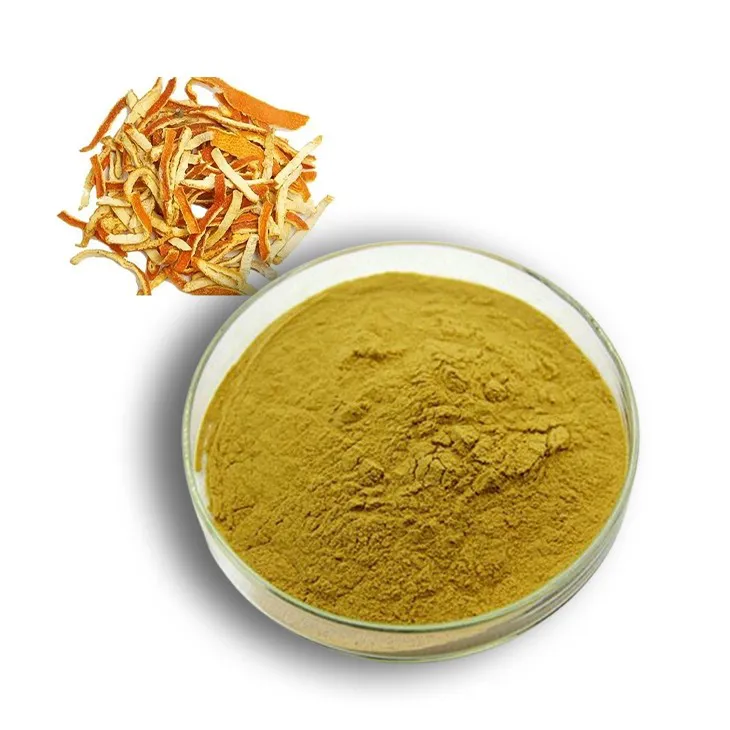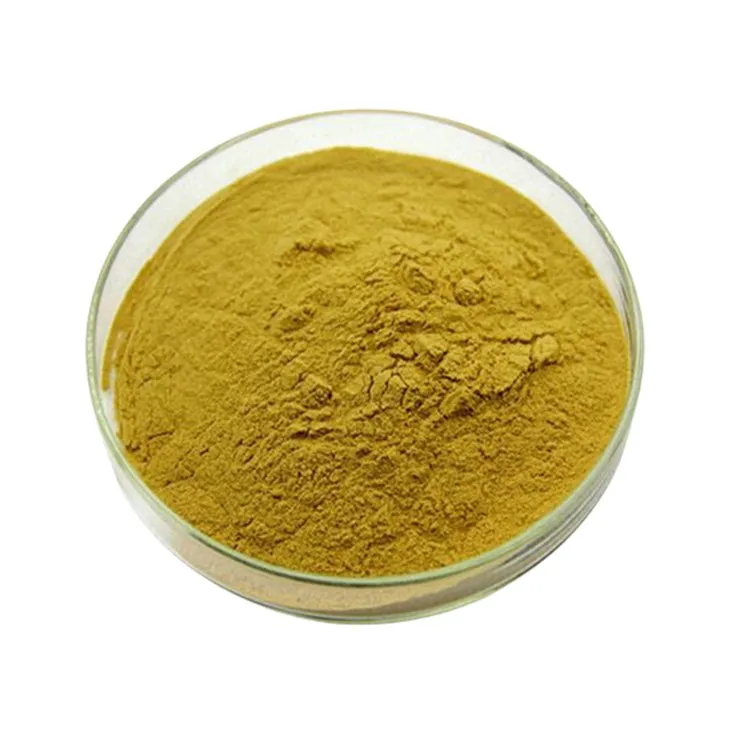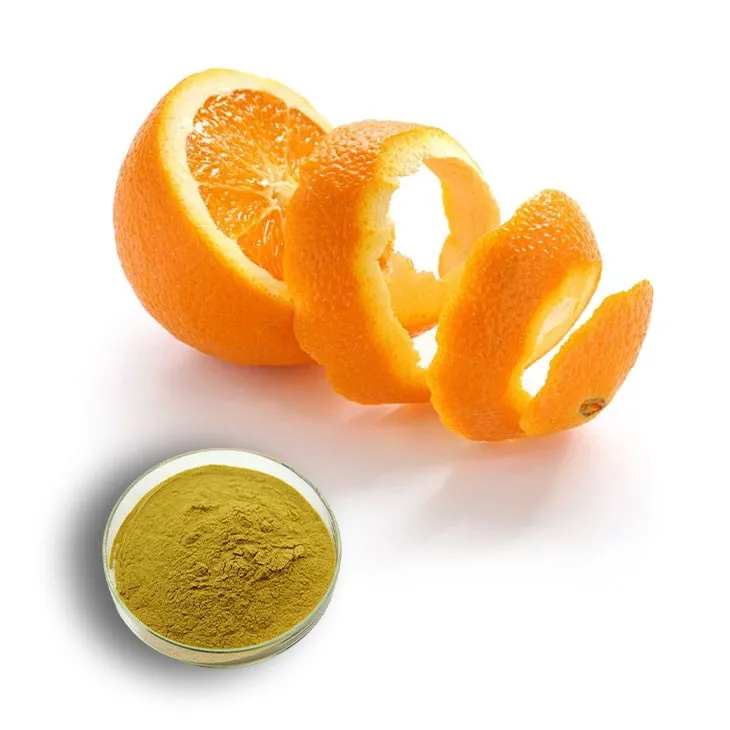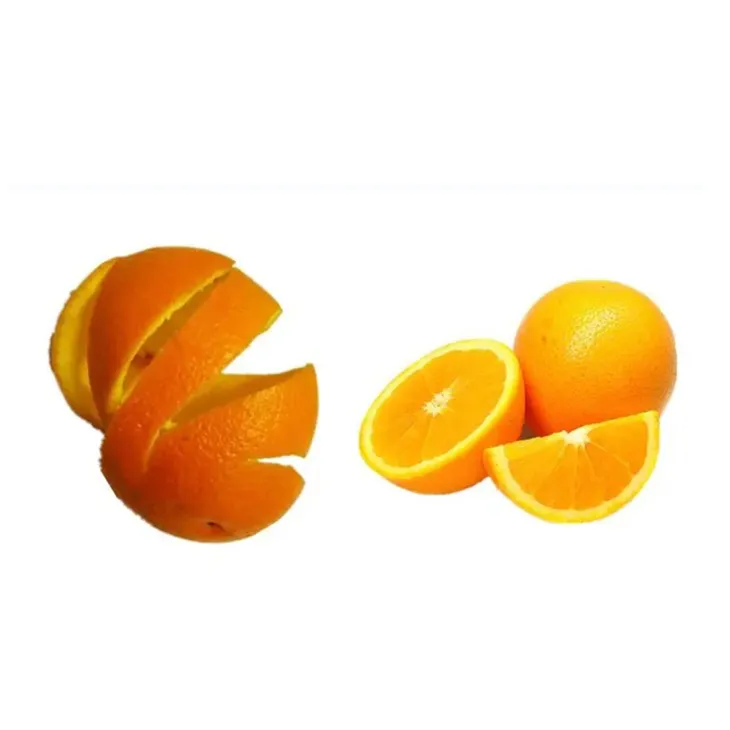- 0086-571-85302990
- sales@greenskybio.com
Hesperidin: Evaluating its Safety and Potential Toxicity
2025-08-24

Hesperidin is a bioflavonoid, naturally found in citrus fruits, that has gained significant attention for its potential health benefits. As an active compound with antioxidant, anti-inflammatory, and vascular-protective effects, Hesperidin is increasingly used in dietary supplements and functional foods. However, questions about its safety and potential toxicity are crucial for consumers and health professionals to consider. This article delves into the nature of Hesperidin, its benefits, potential toxicity, and the safety measures associated with its use.
Understanding Hesperidin
Hesperidin belongs to a group of compounds known as flavonoids, which are known for their diverse biological activities and health-promoting effects. Naturally occurring in citrus fruits such as oranges, lemons, and grapefruits, hesperidin significantly contributes to the bitter taste of these fruits. As a component known to contribute to the health benefits of citrus fruits, hesperidin has been extensively researched for its pharmacological properties.

Health Benefits of Hesperidin
1. Antioxidant Properties: Hesperidin exhibits powerful antioxidant effects, helping neutralize free radicals that can damage cells and contribute to various chronic diseases, including heart disease and cancer. It aids in reducing oxidative stress, which is a major cause of cellular damage.
2. Anti-inflammatory Effects: Chronic inflammation is a root cause of numerous health conditions. Hesperidin has anti-inflammatory properties that may help reduce inflammation, potentially aiding in the management of inflammatory diseases like arthritis.
3. Cardiovascular Protection: Studies suggest that hesperidin can improve vascular health by augmenting blood flow, reducing blood pressure, and improving lipid profiles. It may support endothelial function and reduce the risk of atherosclerosis by inhibiting the formation of plaques in the arteries.
4. Metabolic Health: Hesperidin may also play a role in improving metabolic health by reducing blood sugar levels and enhancing insulin sensitivity, making it a compound of interest in managing and preventing type 2 diabetes.
5. Immune System Modulation: Hesperidin has been shown to modulate the immune system, enhancing the body’s ability to fend off infections and diseases, while also potentially mitigating allergic reactions.

Potential Toxicity of Hesperidin
While hesperidin has a range of beneficial effects, it is crucial to assess its potential toxicity to ensure safe consumption. Generally recognized as safe (GRAS) by health authorities, hesperidin derived from citrus fruits is widely considered safe when consumed in typical dietary amounts. However, like many substances, it is essential to consider the dosage and form of consumption, as excessive intake may lead to adverse effects.
1. Digestive Disturbances: In some cases, high doses of hesperidin supplements can cause mild gastrointestinal issues such as nausea, abdominal pain, or diarrhea. It’s important for individuals to consume hesperidin within recommended limits to avoid such disturbances.
2. Allergic Reactions: Although rare, some individuals may experience allergic reactions to hesperidin, especially if they have allergies related to citrus fruits. Symptoms might include rash, itching, or in more severe cases, difficulty breathing.
3. Interactions with Medications: Hesperidin may interact with certain medications, particularly those affecting blood clotting, as it can enhance the effects of anticoagulant drugs like warfarin, leading to increased bleeding risks. It is crucial for individuals on medication to consult with healthcare providers before incorporating hesperidin supplements into their routine.
4. Impact on Hormones: There is limited evidence suggesting that, in excess, hesperidin might influence hormone levels, although the clinical significance of this is yet to be fully elucidated. Nonetheless, it underscores the importance of maintaining appropriate doses.

Safety and Recommended Dosage
Determining the safe dosage of hesperidin is vital to mitigating any potential toxicity. For individuals consuming hesperidin naturally through citrus fruits, the risk of toxicity is virtually negligible due to the synergistic presence of multiple compounds which facilitate balanced uptake and metabolism.
For those opting for supplementation, current research suggests that doses up to 500 mg per day are generally considered safe for short-term use, though the exact dosage may vary depending on individual health conditions and specific health goals. Long-term studies on high-dose supplementation remain limited, emphasizing the importance of conservative dosing and medical supervision for extended use.
Manufacturers of hesperidin supplements should ensure that their products are produced in compliance with Good Manufacturing Practices (GMP), and consumers should seek products that have been third-party tested for purity and potency.

Potential Applications Beyond Supplements
1. Functional Foods and Beverages: Hesperidin is being incorporated into various functional foods and health drinks that aim to provide added health benefits beyond basic nutrition, utilizing its antioxidant and anti-inflammatory properties.
2. Dermatological Products: Due to its antioxidant profile, hesperidin is being explored in topical formulations to protect the skin from oxidative damage and enhance skin health.
3. Scientific Research: Ongoing studies are evaluating hesperidin's potential therapeutic roles in diseases such as hypertension, diabetes, and even certain cancers, which could expand its applications in medical nutrition therapy.
Expert Opinions and Considerations
While the consumption of hesperidin as part of a balanced diet that includes citrus fruits is universally regarded as safe, the use of concentrated supplements should be approached with informed caution. Experts suggest that the preventative and therapeutic properties of hesperidin cannot substitute for medical treatments but can complement a holistic health regimen. Individuals should consider their personal health status, existing conditions, and consult healthcare professionals when considering hesperidin supplements.
Conclusion
Hesperidin, a prominent flavonoid derived from citrus fruits, offers an array of health benefits, most notably its antioxidant, anti-inflammatory, and cardiovascular protective properties. Generally recognized as safe in dietary forms, hesperidin has a low risk of toxicity when consumed properly and within recommended doses. Consumers and healthcare providers should remain cognizant of the potential interactions, side effects, and ensure that supplementation is tailored to individual health needs. Continued research will further elucidate the full spectrum of hesperidin’s capabilities, potentially expanding its application in health and disease prevention.
Green Sky Bio provides the best extracts and supplements. It is a Chinese self-developed brand that is trustworthy! Welcome to email us to inquire about our products.
- ▶ Hesperidin
- ▶ citrus bioflavonoids
- ▶ plant extract
- ▶ lycopene
- ▶ Diosmin
- ▶ Grape seed extract
- ▶ Sea buckthorn Juice Powder
- ▶ Beetroot powder
- ▶ Hops Extract
- ▶ Artichoke Extract
- ▶ Reishi mushroom extract
- ▶ Astaxanthin
- ▶ Green Tea Extract
- ▶ Curcumin Extract
- ▶ Horse Chestnut Extract
- ▶ Other Problems
- ▶ Boswellia Serrata Extract
- ▶ Resveratrol Extract
- ▶ Marigold Extract
- ▶ Grape Leaf Extract
- ▶ blog3
- ▶ Aminolevulinic acid
- ▶ Cranberry Extract
- ▶ Red Yeast Rice
- ▶ Red Wine Extract
-
Sugarcane Extract
2025-08-24
-
Phyllanthus Emblica Extract
2025-08-24
-
Acerola Juice Powder
2025-08-24
-
Sophora Japonica Flower Extract
2025-08-24
-
Alisma Extract
2025-08-24
-
Shikonin
2025-08-24
-
Rosemary extract
2025-08-24
-
Pueraria Lobata Extract
2025-08-24
-
Uridine-5'-monophosphate Disodium salt
2025-08-24
-
American Ginseng Root Extract
2025-08-24





















